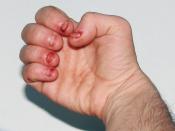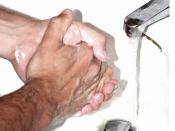What Is OCD?
If you or someone you care about has been diagnosed with Obsessive-Compulsive Disorder (OCD), you may feel you are the only person facing the difficulties of this illness. But you are not alone. In the United States, 1 in 50 adults currently has OCD, and twice that many have had it at some point in their lives. Fortunately, very effective treatments for OCD are now available to help you regain a more satisfying life. Here are answers to the most commonly asked questions about OCD.
What Is Obsessive-Compulsive Disorder?
Worries, doubts, superstitious beliefs all are common in everyday life. However, when they become so excessive such as hours of hand washing or make no sense at all such as driving around and around the block to check that an accident didn't occur then a diagnosis of OCD is made. In OCD, it is as though the brain gets stuck on a particular thought or urge and just can't let go.
People with OCD often say the symptoms feel like a case of mental hiccups that won't go away. OCD is a medical brain disorder that causes problems in information processing. It is not your fault or the result of a "weak" or unstable personality.
Before the arrival of modern medications and cognitive behavior therapy, OCD was generally thought to be untreatable. Most people with OCD continued to suffer, despite years of ineffective psychotherapy. Today, luckily, treatment can help most people with OCD. Although OCD is usually completely curable only in some individuals, most people achieve meaningful and long-term symptom relief with comprehensive treatment.
What are the symptoms of
Obsessive-Compulsive Disorder?
OCD usually involves having both obsessions and compulsions, though a person with OCD may sometimes have only one or the other.
Table 1. Typical OCD Symptoms...


